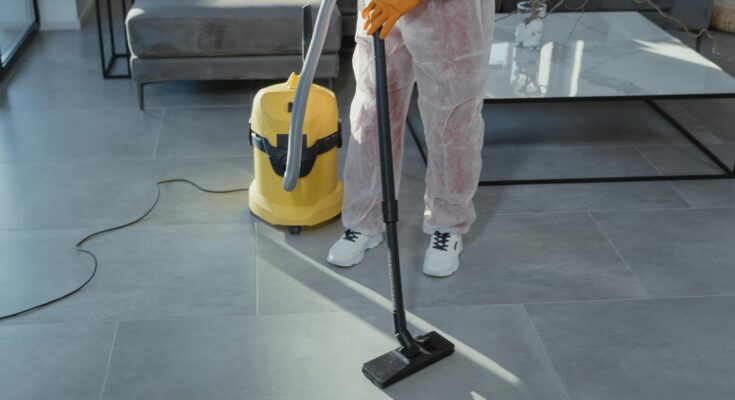USA Cleaner Jobs
A number of variables, such as expanding commercial and industrial areas, rising standards for cleanliness, particularly in public and healthcare institutions, and growing populations, have contributed to the recent spike in demand for cleaner employment in the United States. Essential services are performed by cleaners, who make sure that spaces are not only hospitable but also sanitary and secure for staff, tenants, and guests. This article explores the range of cleaning occupations available in the United States, including the many kinds of cleaning positions, essential skills needed, salary ranges, employment prospects, and career paths.
Types of Jobs in the USA for Cleaners
Jobs for cleaners come in a variety of industries and specializations. Among the primary kinds are:
Residential cleaners are primarily responsible for the upkeep of residences and apartment buildings. Vacuuming, dusting, mopping, and even thorough cleaning of kitchens and bathrooms are among their duties. Housekeepers might work for themselves or for cleaning services.
Commercial cleaners are in charge of keeping areas where staff and clients interact clean in office buildings, retail shops, and other commercial settings. Typical tasks include vacuuming, cleaning restrooms, disinfecting surfaces, and emptying garbage cans.
Industrial cleaners: These cleaners work in harsher settings such manufacturing facilities, warehouses, and factories. To manage industrial trash, clean machines, and keep a safe working environment, they employ specialized equipment.
Hospital & Healthcare Cleaners: By sanitizing surfaces, patient rooms, operating rooms, and waiting areas, cleaners play a critical role in preventing infections in healthcare environments. They are frequently trained to handle biohazardous items and are subject to stringent health regulations.
Cleaners of Schools and Educational Facilities: In charge of keeping classrooms, restrooms, and other spaces in schools, colleges, and childcare facilities clean, these cleaners contribute to creating a clean and safe learning environment for both employees and students.
Hotel & Hospitality Cleaners: To provide visitors a satisfying stay, cleaners in the hospitality sector make sure that rooms and common areas are kept immaculate. This covers reporting any maintenance problems in addition to cleaning.
Competencies Needed for Jobs in Cleaning
Even though cleaning positions are frequently regarded as entry-level, they call for a set of fundamental abilities to guarantee that the work is completed effectively and safely:
Care to Detail: Scratches on glass, dust in corners, or spills that require quick care are just a few examples of the minor details that cleaners must pay attention to because they can have a big impact on cleanliness and hygiene.
Time management: Especially in commercial or industrial settings, cleaners frequently have a specific amount of time to finish jobs. To finish all of the responsibilities in a given shift, effective time management is essential.
Physical stamina: Lifting, bending, and standing for extended periods of time are all part of cleaning, which can be physically taxing. The job requires physical endurance.
Understanding of Cleaning Products: Especially in specialized tasks where using the wrong products could result in damage or poor disinfection, cleaners must know which products are suitable for various surfaces.
Basic Mechanical Skills: Using equipment like floor buffers, vacuum cleaners, and power washers is necessary for many cleaning duties, particularly in industrial environments.
Adaptability: Cleaners frequently deal with a variety of unforeseen circumstances and must be able to rapidly adjust to new jobs or problems.
Salary Range and Employment Prospects for US Cleaner Jobs
There are numerous positions available for anyone looking for part-time or full-time work, and cleaner jobs typically offer stable employment. Although earnings might vary based on factors like region, industry, and experience, the U.S. Bureau of Labor Statistics (BLS) reports that as of 2023, the median annual wage for janitors and cleaners—including maids and housekeeping cleaners—was approximately $30,000.
Entry-Level Pay: Starting pay for cleaners is often between $13 and $15 per hour, which is at or just above the minimum wage in most places. Hourly income in places like California or New York, where living expenses are higher, can be closer to $18 to $20.
Experienced Cleaners: Experienced cleaners can make up to $20 per hour, particularly if they work in specialized positions like industrial or hospital cleaning. In cleaning organizations, management or supervisory roles can pay much more, typically ranging from $40,000 to $60,000 per year.
Employment Prospects: In the USA, cleaners continue to have a promising employment outlook. Given the COVID-19 pandemic and growing awareness of sanitation and hygiene, there will likely be a greater need for cleaner professions. Janitors and cleaners are expected to rise at a rate comparable to the national average for all occupations, according to the BLS.
How to Get a Job in Cleaning
Cleaner jobs are a great way to get started in the profession because they are typically available to those with little schooling. In the USA, the following are typical routes to become a cleaner:
The majority of cleaning positions offer on-the-job training, which enables new hires to pick up the necessary skills without any prior experience. Health and safety regulations, as well as the usage of cleaning equipment and chemicals, are usually covered in training.
Vocational Courses: For individuals seeking specialized cleaning positions, especially in healthcare or industrial settings, certain vocational schools provide courses in sanitation and hygiene.
Certification Programs: Companies such as OSHA (Occupational Safety and Health Administration) and ISSA (International Sanitary Supply Association) offer certifications to cleaners who wish to progress. Earning potential and employability can both be improved by such qualifications.
Opportunities for Advancement: Skilled cleaners can move up into managerial positions like cleaning managers or team leads. Some can decide to launch their own cleaning companies and provide their services to commercial, industrial, or residential customers.
Opportunities and Difficulties in Cleaner Jobs
Although cleaning positions provide consistent employment and growth prospects, they can present several difficulties:
Physical Demand: If cleaning tasks are not adequately managed, their physically demanding nature may cause weariness and even injury. To reduce strain, employers are urged to offer ergonomic equipment and frequent breaks.
Exposure to Dangerous Materials: Cleaners may come into contact with dangerous substances, particularly in industrial and healthcare environments. Using personal protection equipment (PPE) and receiving the appropriate training are essential.
Job Satisfaction: Although cleaning positions may not always pay the most, many employees feel fulfillment in keeping the workplace hygienic and secure for others. These positions are also perfect for people juggling other obligations because of their flexible schedules.
Seasonal need: There may be a seasonal need for some cleaner positions, such as those in the hospitality industry. Nonetheless, there are plenty of year-round jobs in cleaning for businesses, homes, and healthcare facilities.
How Technology Affects Cleaner Jobs
Cleaner employment are changing as a result of technological advancements. For jobs like cleaning floors in big areas, robots and automated equipment are being utilized more and more. Automation may eliminate the need for manual labor in some activities, but it also gives cleaners the chance to learn new skills in using and controlling cleaning equipment. Additionally, cleaners can become more productive by using technology to increase productivity and quality of work.
Success Strategies for Cleaner Jobs
The following advice can help you develop a lucrative cleaning career:
Keep Up: Continually broaden your understanding of new cleaning methods, supplies, and machinery.
Emphasis on Health and Safety: It’s critical to handle cleaning supplies correctly and keep a safe workplace.
Stress Reliability: Cleaners who are dependable, consistent, and on time frequently build a solid reputation that leads to job security and promotion.
Invest in Professionalism: Even in a low-level cleaning position, projecting a professional image can help you stand out. Additionally beneficial are strong customer service abilities, particularly for positions requiring close interaction with customers.
USA Cleaner Jobs
In the United States, cleaner jobs are essential to preserving public safety, comfort, and health. There are many of prospects for advancement, skill development, and specialization even if the area is entry-level. Cleaner jobs provide dependable work for people looking for consistent pay, flexible hours, and an opportunity to make a noticeable difference, as the need for cleanliness in public and private settings grows. Cleaner jobs will change as the sector expands and technology advances, presenting new chances and challenges for professionals in the field.



